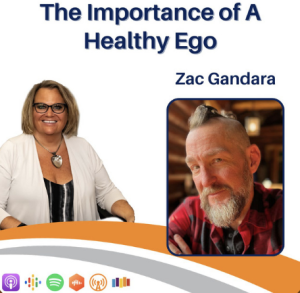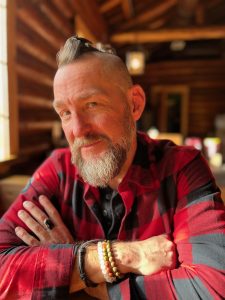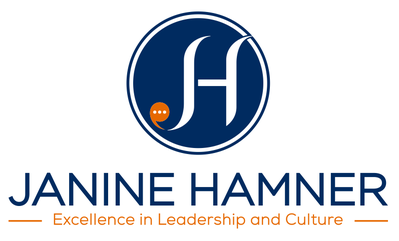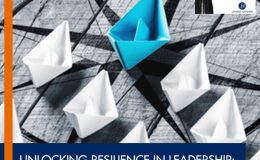
What’s your relationship with your ego? Is it something you think about or avoid? In this episode, Janine Hamner Holman sits down with Zac Gandara, an Ego Alchemist and coach, to discuss the need for a healthy ego and relationship with oneself.
GUEST: Zac Gandara | LinkedIn, Instagram
HOST: Janine Hamner Holman | [email protected] | LinkedIn, Facebook, Instagram
What am I paying attention to today? As we’re recording this, it is the 13th of November, which I am having a hard time getting my head around. Somebody said to me the other day, “2023, she has places to be. She is getting out of here.” This year has gone so fast and November and December are an interesting time in many people’s lives. In my life, my husband and I had our first date on November 8th, and that’s something we remember.
My birthday is November 26th. Thanksgiving is coming. It is not on my birthday. I was born on Thanksgiving, and if I had it my way, it would’ve happened once, almost 59 years ago and then never happened again because it’s a cool thing to be able to say. I was born on Thanksgiving and it stinks when your birthday is on a national holiday. My older stepson’s birthday is Christmas Day. That would suck more. We have Thanksgiving and then we have Christmas.
I am a human for whom my birthday is a big deal, and Christmas is a big deal. I don’t care much about Thanksgiving. This year I am hosting my husband’s family at our home.
My husband’s mom does not think I am awesome. I get to have my mother-in-law, who recently turned 90, in my home for Thanksgiving. My husband and I figured we were going to do this for various reasons, having to do with the health and welfare of people in our family. It’s an important Thanksgiving.

It was important to him everyone was together and for various reasons, it’s coming to us to host. Of course, as the woman of the house, there are all kinds of things I feel are expected of me and of how my house looks. I spent all last weekend cleaning. I am privileged to have someone who comes to my house and cleans. It wasn’t that kind of cleaning. She’ll come and change the beds, vacuum, clean the toilets, and all that stuff. This was all the other stuff.
It’s got me thinking about how hooked we get by these expectations. I began by saying I’m a human who loves my birthday and who loves Christmas, and I get hooked by that in both positive and negative ways. I have a lot of expectations about how it’s going to go, good, bad, and ugly.
If you are one of those people too, I encourage you to know you’re not alone. It comes around every year, and every year we have an opportunity to choose something different. We get to choose how it’s going to go to a large extent, we’re way more powerful than we think we are. With that, I am about to transition…
I’m going to give a little of what I know about Zac, and then Zac is going to fill in for us. I got to know Zac through my very best friend in the world, a kick-ass woman named Kit Cole. When Kit says to me, “Oh, you’ve got to meet this person.” I know I’ve got to meet this person. I hope you all have people like that in your lives. You can trust them 185%.
Kit said to me, “I met this cool dude. You’ve got to meet Zac.” One of the things he does is work with people on organizational PTSD. As some of you may have learned in the past, I’ve got some PTSD from organizations where I used to work.
Like any place we used to work, some of it was awesome and some of it blew chunks. The trick is because of how our brains are wired, we’re always going to remember more about the stinky parts, than we are about the great parts. That’s part of what I love about what Zac is up to.
He’s about helping us figure out how to live through the things we’ve lived through, how to put down the junk, keep the gold, and if your life is anything like mine, we don’t grow when it’s 72 degrees out. We don’t grow when we’re comfortable. We grow through adversity. Part of the way I think about Zac is he helps us manage ourselves in the midst of adversity and then also figure out the transformational growth we want to have through the experience.
Welcome to the show, Zac!
You nailed it. I’m blown away. I’ve got goosebumps right now. I’m like, “Whoa. She’s nailing it. She sees me.” It feels so good to be seen.
I’m going to pause there for just a second. When Zac said “She sees me,” I got goosebumps because that’s the trick. Regardless of what situation we’re in, whether it’s Thanksgiving dinner, at work, with our friends, with our spouse or significant other, or with our kids, when we feel seen and help another person experience being seen, that’s when social exchange happens.

That’s when the glue happens. That’s at least when the glue gets laid down. We talk so much about wanting to feel like you belong at work. That’s the trick. Having people experience being seen, being known. That’s what makes people feel like they belong. Thank you for that distinction, Zac.
It’s huge. Everything you’re saying leads directly into the work I do, when we can’t get that from organizations or from our family, there is a path and a journey to creating that inside yourself so you always feel seen despite the outside things.
That’s one of the big parts of when you have PTSD, it’s a hard thing to work through, but it can become a huge superpower in every single person’s life that can be used for so much good and growth if they can work through the process of moving from the trauma through to healing and into the thriving. That’s the trick, not getting stuck in the trauma, not getting stuck in the healing so you can move into the thrive and live in your life free of it.
How often do we end up stuck in one of those two first spots? We keep telling the story of the pain, which gets us stuck in the pain, or we get hooked by the healing work and stuff in the story of the healing, which sometimes is scratching, continuing to scratch at the wound and not then move into the thriving. Let’s start where you were starting, which is this concept of PTSD, which obviously, I don’t know if it originates with folks in military service, but that’s where I think about it being the most acute.
It’s people who have served and are transitioning back and have lived through some very harrowing experiences and then trying to find their footing. When we’re talking about it inside an organizational context or work context, what are the kinds of experiences you find that give people this experience of post-traumatic stress disorder?

We could spend the entire episode and I can list them, but the core thing it all comes down to is your team and the people in your company and business need to feel safe to verbalize. If they don’t feel safe, that is what starts leading things to PTSD. There are other things that build on top of that.
There’s ladder climbing, there’s backstabbing, there’s gossip, there’s all the things that happen when a human doesn’t feel safe. Those are all reactions to human beings not feeling safe. Their egos get triggered because your ego is the number one, the ego gets a bad rap in Western culture.
We think of it as narcissism, arrogance, or someone being cocky. We all have an ego. So what is an ego at the base? In German, the word ego means self. It is who you are in your psyche. It’s who you are.
Your identity is wrapped in your ego and who you are as a person. Your consciousness is also wrapped in your ego. It’s one of the things that definitely separates us from the animal kingdom. At its core, the ego’s job is to protect you. When you cross the street, when you go to turn left or right, you do that because your ego is protecting you from getting crushed by a bus.
The challenge is when we have a significant event in our life that causes trauma, our ego creates this protection mechanism around that place in our life and in our psyche, and it becomes the overbearing parent that is too productive.
That starts regulating our nervous system around certain things, which causes us to feel fear or to feel these things that may not be present in our current reality, but that our ego is bringing into our present reality because it’s afraid and it doesn’t want to get hurt again. As a protective mechanism, ego wants to propel the future. If it can propel the future, then it keeps you safe. Your Thanksgiving example was so perfect.
The first thing I do with a client is talk about whatever trauma they’re feeling are the reactions they feel are holding them back. They can be connected to a number of different things. They can be work-related or personal. Your ego doesn’t care. You had an event with your mother-in-law at some point that proved to you she doesn’t like you.
This is a common thing with in-laws. We’re going into the holiday season, we’re going into the in-law season. We are going into the trauma mode season, which is why we have these family events and everybody’s on edge because they’re in protection mode. An event happened to create that narrative.
Whether it’s true or not is irrelevant because everything that happens to us matters. Everything we perceive that happened to us also matters. It’s important to value both, but that event creates a trauma protection inside of you that leads to this thing I like to call the ego protection plan. Alternatively, you become your own inner activist and decide you’ll never allow that again.
This is great. This is where these traumas can become our superpower in many ways, like myself, it becomes your colleague. You find your destiny in this place of deep pain. There’s a turning point that keeps us on this ego protection cycle. I like to visualize it as red, like stop. This is where we get stuck.
If we don’t shift from the activism mode, which is normal, into something else, then we shift into judgment. Now all in-laws are bad. We see this in our world in politics. We see it in companies, in businesses, in wars, we see it in big things and in little things. Everybody is in this ego protection mode leading them to judgment of the other being bad.
Because what the ego’s doing is it’s trying to stay safe by telling the future. We instantly go into a judgment that this is good or bad, right or wrong. That leads us in this protection cycle which often keeps us stuck because what if there’s a glimmer?
I’m not saying this may be true or not, Janine, I don’t want to give you any false hopes, but what if there’s a part of your mother-in-law that was also traumatized? Maybe she was treated wrongly by her in-laws. She’s stuck on this ego cycle, and because she doesn’t know what to do with it, she projects it on you.

I am 110% sure there has been damage done to my mother-in-law by people in her life. I know enough of her story to know that absolutely is true. It is one of the things that gives me compassion for her and for anybody else who’s been traumatized. This example of Thanksgiving or other holidays, many of them involve family and when you put two family members in a room things can get complicated.
I have this story I am living into based on things that have happened in the past called my mother-in-law does not like me. I’m living that out as though it is the only truth in the story. If we don’t break the cycle, that is of course how that’s going to go. I’m going to be showing up in a way to ensure she continues to not like me.
You instantly show up defensive.
Exactly. Most humans don’t like it when other humans are defensive. It makes us weird. In this situation, how do I transform this? How do I create opportunities to have it go in a different way?
First of all, you are fully aware and you clearly understand this. We’re using this as an example.
We are, yes.
The other thing I want to mention is family issues are the most difficult traumas and ego things to work through. They’re very deeply rooted in us. They started the moment we entered this realm we call Earth, and we came crying or not, and they spanked us.
The family stuff is the deepest and most difficult thing. You could do years of work, and I do too. We all do years of work on family stuff alone. Somebody who knows you for your whole life will find something, their ego will find a part of yours that is still hurt and will trigger the thing. How it begins is understanding your triggers are your teacher.
The very things that make you defensive, the very things that make you scared, that make your nervous system tighten up, and you start to feel that tightness in that chest or wherever you feel your nervous system being triggered. These are the things to become curious about. That’s where the work begins.
As we do the cycle, if we leave the ego cycle, we all have the event that caused the trauma. The trauma is within us. That means there’s something we can do about the trauma. We can gain authority over the trauma and create change. The first part is to take ownership.
When you can take ownership and you become aware, you begin to get off the ego cycle, the ego trauma cycle, I should say. One thing I’ll do with almost every client, my company is called BreakBox Coaching & Creative. What I’m doing is using psychological tools in a creative way that creates play so we’re playing with these things. Play is known scientifically to increase neuroplasticity and to make changes quicker. That’s why we teach children things with play.
The first part of becoming aware of trauma so you can do something about it is separating yourself from your ego. Psychologists, therapists, and us who do this work, we call our identity our true self. Then there’s a false self, which is the other side of the ego call. We call this the shadow.
The shadow is this hurt part of ourselves where we restore things and we suppress things, and it’s a dark area. That’s why it’s called the shadow. If we can separate, the first part is for you, Janine, to name your ego. So your name is Janine, that’s who you are. What fun name represents your ego, that hurt part of you, the shadow part of you? Mine is named Chad.
I have friends who are Chad. This is no wrongdoing on any Chad, but my inner hurt self, or what psychologists would call your inner child is Chad. His name is Chad because he’s entitled. He is used to getting things easily to him and not having to do the work for them. He’s highly insecure. He’s what I would imagine Chad as a frat boy coming out of college.
He sounds delightful.
Everybody loves Chad. If you were to throw a name out for you, who’s your false self?
Well, it’s funny. The first thing that came to me was Bertha.
Oh, I like it. Why?
I think it feels like it feels heavy. It feels onerous. It feels unpleasant.
Exactly. You said the word feels a bunch.

I did.
That is what we’re getting at here, is to move from the logical cognitive things going on in our subconscious brain that our false self is bringing up, which can be very hard for some of us.
It’s the most difficult part. What gets us off that ego after we move from activism and ego protection is awareness or ownership. You begin to own that there is a false self in you. There’s a version of you that has hurt, that has been through some things, that is protecting you. Now that you can talk about Bertha, you instantly get a smile on your face, right? The minute I said her name…
I did. In part, obviously, I was also listening to you. When you said Bertha, that time, it was not in the way I said Bertha. When I verbalized her, it was in a very different mode. When you verbalized her in the transitioning and continuing of the healing circle of this, you put her in a different space, which then made me smile, which was the very beginning of play.
Yes. The very beginning of play, and also what I see my biggest role in as a guide here, people’s transmutation or change out of these things is I’m creating a safe space for Bertha. I am showing unconditional love to Bertha. That’s my job as the guide, and I can do that because I’m separated from her. She’s not like Chad, I have the hardest time loving Chad.
Of course.
But Bertha, I can love Bertha. She has not hurt me.
Exactly.
That’s a big part of my job as the guide, to help model to you throughout these sessions of how to see Bertha in a different way. Remember back when I said your triggers are your teachers? Bertha has been crying out for decades to be heard. Where do riots come from? Riots come from crowds of people where their needs have not been met and they’re not being heard.
Our egos have gone through these traumas, and what we’ve done put them in our subconscious in the shadow place we don’t want to go and deal with. Bertha has been there crying out to be heard. This is the work that leads to the healing to reach our goals. It’s finding a way in a space that’s safe to listen to Bertha, for most clients for the first time. That’s where it becomes difficult.
Shadow work is difficult because it’s taking you back to those places not to relive the pain, but to hear what your true, this version of you, the false self, the ego, the protective self needs to feel and say, because once we can get there, maybe there’s something that happened, and this is very fascinating with our psyche. Maybe there was something that happened to Bertha when she was six that created something in you which still creates this protection around in-laws, or creates this fear of authority figures, or whatever the case may be.
The interesting thing about our psyche is whatever age the trauma happened at our psyche, our ego goes to protect it and stops developing from that age on. That’s why when you get involved in relationships and you get involved in maybe a marriage, you start fighting and you’re like, “Why do I sound like a fucking six-year-old?”
Because that’s how old your psyche is.
That’s it. Because that’s how old that version of you is, that got hurt, and you only know how to talk like a six-year-old. What happens when you start to listen to Bertha the six-year-old and you start to hear her most times for the very first time, something changes and you begin to feel what Bertha felt, and now you can do something with it.
Now you can process it, you can go through the grief. Now you can go through those emotions. What happens in the psyche is the ego begins to trust you and it releases that grip on trauma so you can start to live your life free of feeling that pain over and over again.
From the limited amount I know about neuroscience, one of the things our brain does is say, “Oh, this is like that other thing.”
The more we can release our grip on those other things where trauma happened then, from a psychological neurobiology, brain plasticity place, is it possible those things stop living in our mind in the way they have? Is it that the ease of that to hook us again, that hook is much less, it’s a much smaller hook. Do you have a perspective on that?
That is the number one question I get from a lot of clients in their pre-assessment session because Western culture has taught us, “How do I get rid of this feeling?”
I don’t like this thing. How do I make it go away?
I have a military client, and when we started talking about his ego, I asked, “What did the military teach you to do about the spear?” And he said, “Kill it. We murder it.” The thing causing you the fear, that’s what you kill.
I don’t want to bring the conversation down, but how many of our military veterans suffer from suicide? They were only trained one way. Now, okay, let’s bring it back up. We’re thankful for them and we want to help them. This work does that. We live in this current of emotion that our ego is throwing us, we live in this river of emotion.
When we begin working together, it’s probably overwhelming. It’s controlling you in a number of ways. It’s causing you to project and create reactions and not grow in certain ways. What the work does is it gets Bertha to trust you so she can release her grip from that area. Much like what meditation teachers say meditation does, meditation kind of pulls you above those emotions.
There’s a man named Richard Alpert. He used to do a lot of work with psychedelics in the sixties and seventies and stuff like that, and helping people heal from trauma. That aside, that’s a whole other thing. I’ve never done them. I would love a scientific person as a guide to take me on a mushroom trip.
The point is one of the things he said was, is when we begin to heal that place, we move out of the current, and now we’re standing on a bridge above it. We might feel it splash from time to time, but we will never be caught in the current of it again. Meaning you’re free from it ruling your life, but we never get rid of it.
It’s important because as you try to get rid of it, you’re trying to get rid of Bertha, and Bertha has a very important function, which is to keep you safe. What you want is to develop a trusting relationship with Bertha you’ve never had because you keep silencing her.
That trust builds rapport, and that’s the shadow work. That’s the hard stuff. It’s difficult to do that work alone.

When you learn the tools and you learn how to do it, you can, and it grows. The point for me is to teach you how to do it so you don’t need me anymore. It’s not like therapy. You don’t spend 10 years in therapy. You learn what you need and then process it yourself and heal it yourself, which is the point. It’s that version, that healing of that trust you’re building with Bertha that moves you above it so you’re not in the current mode anymore.
You can see it and recognize it, but not get, as I was saying, hooked by it, as you were saying in the current of it.
What it feels like is interesting. Something will pop up into your head, an old story, and you’ll laugh. You’ll be like, “Oh my gosh, I remember when my head would do that. It’d bring that story to me and I would feel it, and that would ruin me for weeks or days or hours.”
“Now when that thought comes up, it doesn’t bother me anymore. I don’t feel it.” That’s the thing you’re not feeling. Then the anxiety and the things, you’re not feeling the fight or flight from it so you can make clear decisions moving forward in your life.
Brilliant. How long do most clients work with you? Do they work with you for a year? Do they work with you for six months or five years?
I do packages of 12 weeks and we work together for those 12 weeks. Then we reevaluate. Generally, a client will have a big breakthrough with one of their ego places of protection around week five or six. It depends on how long it takes Bertha to trust me and Bertha to trust the situation. That’s what I’m good at. I’m good at creating the safe space.
At that point, it’s me modeling to you, allowing the stories to come up Bertha upheld, and then me modeling to you. When did Bertha start in that process? Let’s use the Thanksgiving thing. I don’t remember how you specifically started in that story, but I think it began with “My mother-in-law doesn’t like me.”
Correct, yes.
How long have you been married?
We’ve been together for 11 years. We’ve been married for five and a half.
Perfect. That’s enough time for someone to know you.
Then it would be, where did Bertha create that story in that moment? It’ll help you figure out when that story happened, and then it’ll be okay, now notice in your body where are you feeling tightness, so are you feeling in your chest or where are you feeling anxiety? There are different parts of your nervous system that run from your brain all the way through your body.
I’m feeling it right now as we’re talking.
You’re moving your shoulders around, but your neck may tighten, your back may tighten. It’s different. It’s similar for everybody, for the most part in the general area. I’ll teach you then to recognize when, because your body will talk to you before your mind will. Your body will begin to get into fight or flight. Your breathing might get shortened, and your neck and your back might start to tighten up.
When you can read the body, then you can catch it before Bertha starts to talk to you and give you a false story. This is where it becomes effective in meeting that work in stressful situations anywhere. If you can start to feel in your body what your nervous system is doing before it gets to your brain, you can stop it from projecting out of your mouth onto other people.
Isn’t that the trick? There are two tricks. There’s managing what’s going on inside our own brain, and there’s managing what comes out of our mouth and making sure the space between those two things, Bertha says something, I then might get to say something back to Bertha before it comes out out loud.
Exactly. Often how that works with me, for instance, is I’ll be like, “Okay, Chad, I hear you. I value what you’re saying right now. We will talk about that later, but now is not the time.” When I’m with a client with some serious ego, like arrogance, which is triggering me, and I have to create a safe space for him. That feeling aspect is so important in understanding what your nervous system is doing in getting there.
Then do you go back? I will say to myself, “Yeah, we’ll talk about this later.” Then I usually don’t close that circle with myself. If you say to Chad, “Yep, Chad, I hear you. I got it. We’ll talk about this later. This isn’t the time.” Then are you disciplined? Do you go back and close that circle with yourself? Is that part of what’s important in this?
Yes. This is why it’s difficult to do alone, because alone we’ll suppress it and we’ll forget. Every time you see me, I’m going to bring it up. It’s vitally important for you to go back and have that conversation with Bertha and for me to have that conversation with Chad, because that’s how you’re building the trust in the relationship.
If you don’t do that, it’s a breach of trust. If you breach the trust, that reinstalls the trauma and puts you on the protective plan where you’re not in control anymore.
This is brilliant. If folks would like to get in touch with you, we will have information in the show notes, but for the ease of folks, what’s the best way to reach out to you?
Probably my website, breakboxcoaching.com is the easiest way. You could read a bit about it. I don’t talk about this process per se on the website because it’s very bespoke to everybody. It’s very personal and intimate. But yeah, you can connect with me. You can click a button and do a free assessment. There are multiple buttons all over the website for getting a free assessment when we sit down for half an hour like you and I just did and begin the process.
Where it begins is, what do you feel is holding you back? I have a client who is a director at a very big media company in the United States and globally. She came with specific goals of, “I’ve reached a certain place in my career and I should be happy. I’m not happy. I want to be happy. I’m tired of this rat race of happiness, of me trying to need something else.”
You bring those, all those things are connected to Bertha and something that happened, and I love saying this because comedians will joke about it right now, and they’ll be like, “There’s a lot of people that are just like, yeah, yeah, yeah. Everybody’s talking about trauma, this trauma, that trauma… “
It’s overused. It’s a buzzword. But the point is your nervous system rules your world, whether you know it or not, whether you’re conscious of it or not, and whether you’re aware of it or not. Your nervous system is reacting to traumas, whether you’re conscious of it or not.
You said something I wanted to follow up on. We have collectively lived through this COVID-19 pandemic. We are still in a place of financial uncertainty. I heard something the other day about the speed of information, and it used to be that 100 years ago, global knowledge would double every 100 years. Now global knowledge doubles every eight hours.

Things are speeding up, the pace of change is faster. The pace of change is faster, and our brains hate uncertainty. We are living in this sort of soup trauma where there’s all kinds of trauma and uncertainty writ large and writ small, wars and all kinds of things threatening our sense of self and sense of safety.
I appreciate the work you are doing in helping us navigate through. Even if the only thing anybody does is read this today, is creating that distinction of, there is a shadow me who is reliving and connecting to my hurts and pains, and that’s dramatically affecting my life. Even that knowledge can be helpful.
I want to appreciate you for the consciousness you are helping us bring to the pain, the trauma, the things that have us get stuck, and the deep work you are committed to doing with yourself and others to help us move through this. The fact I wrote down, our triggers are our teachers, helping us learn how to learn from the hard things that happen in life. I want to appreciate you for both that work, for who you be in doing that work, for the brilliance you bring to this arena, and for sharing it all with us. Thank you so much.
Thank you. I really appreciate it. I feel super seen by you and it feels wonderful. As you said, as everything in the world is speeding up, that’s where this work is becoming even more important, because we need to find a way to slow down our inside. It’s not ignoring the world around us, it’s not engaging in it. It’s not moving at a fast pace.
As leaders, we like to move at a fast pace. We want to get shit done. Imagine doing that with an inner world that’s calm and at peace, and feels like you’re going slow. I’ve said this to my partner and it changed her life. She owns two businesses. She built her business in New York, and I went on a job with her and I was like, “Baby, are we late?” She responded, “No.” I asked, “Why are we running then? I don’t understand why we’re walking so fast. We’re not late. Are you in a hurry?” She responds, “No.” I go, “Stroll baby, stroll.”
Her business is doing great, but you can be at a pace where going slow is going fast. Imagine your insides are so at peace you’re able to make calm decisions, rational decisions, and quick decisions.
You’re able to have that inner conversation with Bertha in a moment that doesn’t affect your meeting. It’s going slow to go back so we can make change happen and live the lives we want. It’s beautiful. Thank you for seeing me. Thank you for having me on. It’s been super fun. Breakboxcoaching.com. I love to chat. I love talking, so I’m like you. I’m going to talk for hours.
It has truly been my honor. I am Janine Hamner Holman, and this has been The Cost of Not Paying Attention. Remember, great leaders make great teams. Until next time.
Important Links
About Zac Gandara

Zac Gandara is an Ego Alchemist and coach. He’s about helping us figure out how to live through the things we’ve lived through, how to put down the junk and keep the gold. Zac helps us manage ourselves in the midst of adversity and then also figure out the transformational growth we want to have through the experience.






